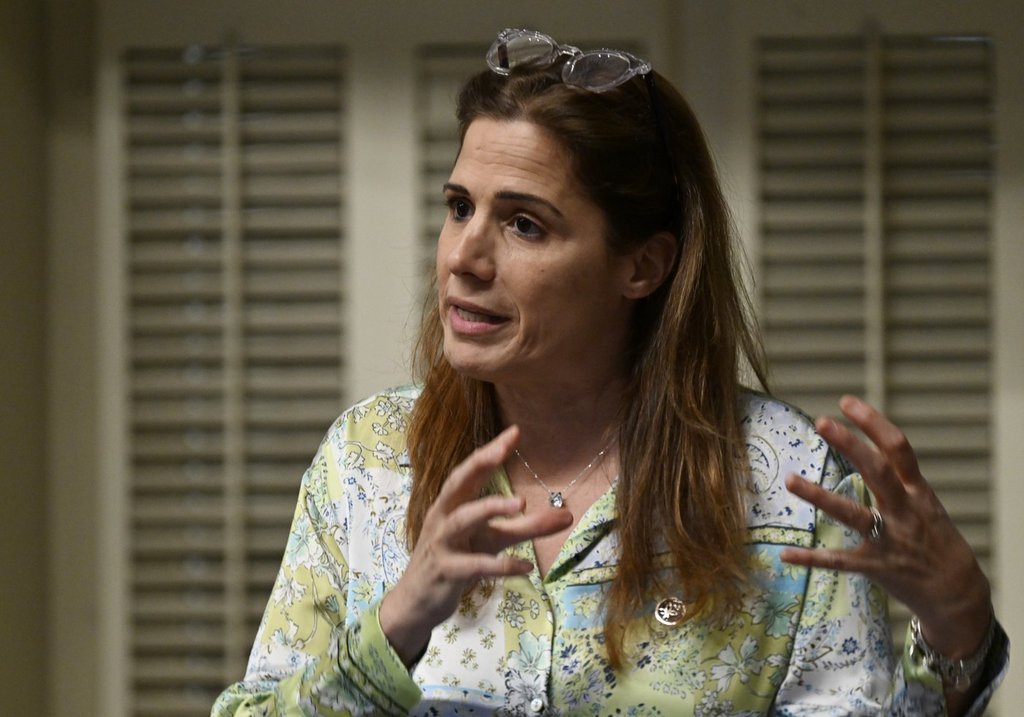Chicago: Muslim recruited for ISIS, urged Muslims to ‘spread terror within the hearts of those who disbelieved’
“Make ready for them all that you can of force and of warhorses, so that by them you may strike terror in the enemy of Allah and your enemy…” — Qur’an 8:60
Chicago man convicted of using social media to recruit for ISIS, and try to spread violent jihad
CBS Chicago, June 27, 2025:
A Chicago man has been convicted of using social media to recruit ISIS operatives and try to spread violent jihad, and encourage people to carry out attacks on behalf of the terrorist group.
Following a bench trial in federal court in Chicago, Ashraf Al Safoo, 41, was convicted of one count of conspiracy to transmit threats in interstate commerce, one count of conspiracy to intentionally access a protected computer without authorization, four counts of intentionally accessing a protected computer without authorization, and four counts of providing material support to a foreign terrorist organization….
Federal prosecutors said he is a naturalized U.S. citizen who was born in Iraq, and moved to the U.S. in 2008.
He was accused of working with ISIS to various social media accounts to spread propaganda supporting violent jihad and recruit operatives to carry out terrorist attacks for the Islamic State.
Prosecutors said he is a member of Khattab Media Foundation, an internet group that has sworn allegiance to ISIS, and spread propaganda online promoting violent jihad. Images and videos he created in coordination with ISIS allegedly included include images of violence during Christmas, celebrations of terrorist attacks, and mass shootings in the U.S.
In one social media post, Al Safoo allegedly encouraged Khattab members to post pro-ISIS information “to cause confusion and spread terror within the hearts of those who disbelieved.”
“Work hard, brothers, edit the issue into short clips, take the pictures out of it and publish the efforts of your brothers in the pages of the apostates. Participate in the war, and spread terror, the [Islamic] State does not want you to watch it only, rather, it incites you, and if you are unable to, use it to incite others,” Al Safoo allegedly wrote in another post.
According to the charges, one video created by Khattab featured a computer-generated image of a family standing around a Christmas tree, with a castle in the background, before cutting to images of explosions, featuring images of dead and injured children.
The video then cuts to the words “Now listen you dogs of hell. This is a message and more are going to follow. This is just the beginning. Our gifts are now ready,” before showing a Christmas present containing a ticking bomb. The video then cuts to a news clip of a mass shooting; an image of a soldier dressed in black, holding a detonator; then landmarks from various world landmarks; and the soldier detonating a bomb.
In November 2017, Al Safoo allegedly used a social media app to encourage people to help ISIS in any way possible….
Canada: Pro-Iran NGO president praises Khamenei, chants ‘death to America’ outside US consulate in Toronto
The NGO, the so-called Canadian Defenders 4 Human Rights, has been stirring up antisemitism in Canada for some time.
Also last year:
And in 2019, the group was lobbying against Jewish rabbis, calling rabbis who support Israel a “danger” to Canada. Firas Al Najim is the founder and head of the organization, which has taken bold pro-Islamic republic stances publicly, such as lobbying the Canadian government during a committee hearing to remove the terrorist designation from the Iran-backed Hizballah group in Lebanon.
Al Najim also stated that the “deviant Jews” are treacherous, know how to bribe and steal, and “killed thousands of prophets.” He cried out: “Oh Khamenei, we respond to your call.”
Now Al Najim is glorifying the supreme leader of Iran, the Ayatollah Ali Khamenei, and chanting death to America.
Islamic supremacists always escalate by degrees.
The worst part is that Al Najim is operating freely inside Canada.
Canada has come out vehemently against “Islamophobia,” even punishing and labeling anyone who criticizes Islam. But antisemitism remains tolerated in a nation that is now internationally infamous for its antisemitism.
Pro-Islamic Republic NGO president chants ‘death to America’ in Toronto
by Walid Tamtam, True North, June 26, 2025:
A video going viral on Canadian social media shows Firas Al Najim chanting common Islamic Republic phrases in Persian, glorifying the supreme leader Ali Khamenei and chanting death to America in front of the U.S. Consulate in Toronto.
Al Najim is the founder and head of the Canadian Defenders 4 Human Rights organization, an NGO that has taken pro-Islamic republic stances publicly, such as lobbying the Canadian government during a committee hearing to remove the terrorist designation from the Iran-backed Hezbollah group in Lebanon.
Last month, his organization called on the Canadian military to “send troops and arms to the Palestinian resistance in Occupied Palestine, Gaza” and pleaded with Prime Minister Mark Carney to “call on David McGuinty, defence minister, to assist the liberation process.”
Al-Najim spoke earlier this month with Press TV, an Iranian state broadcaster, where he shared his views on the Iran-Israel confrontation, warning that any U.S. military action against Iran would be a “foolish move.”
Canada is already grappling with concerns about potential Iranian sleeper cells and regime officials hiding in Canada who could potentially target Iranian dissidents, according to former Justice Minister Irwin Cotler.
With growing anti-Israel sentiment in Canada, the Islamic Republic regime has seen increased support on Canadian streets.…









